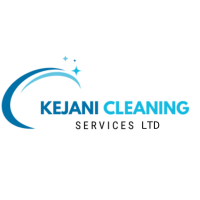In the modern business environment of Kenya, maintaining a clean and organized office is crucial not only for aesthetics but also for regulatory compliance. With a growing emphasis on meeting various industry standards and government regulations, the role of office cleaning has become increasingly significant. This blog post delves into the vital connection between office cleanliness and regulatory compliance in Kenya, providing insights into why a comprehensive cleaning protocol is essential for businesses.
The Importance of Office Cleaning in Compliance in Kenya
Office cleaning is a fundamental aspect of ensuring that businesses in Kenya adhere to regulatory requirements. Various sectors are subject to specific cleanliness and sanitation standards, and non-compliance can result in severe consequences, including fines, legal action, and even business closure. Here’s how office cleaning contributes to compliance in the Kenyan context:
- Health and Safety Regulations
In Kenya, businesses are required to maintain a safe and healthy work environment under the Occupational Safety and Health Act (OSHA). A clean office reduces the risk of accidents, such as slips and falls, and prevents the spread of illnesses, ensuring that employees stay healthy and productive. Regular cleaning and disinfection practices are particularly important in preventing the spread of diseases, especially in densely populated urban centers. - Environmental Regulations
Kenya has been making strides in environmental conservation, and companies are increasingly held accountable for their environmental impact. Implementing eco-friendly cleaning practices, such as using biodegradable cleaning products and minimizing waste, can help businesses comply with environmental regulations. Proper waste management, including recycling and safe disposal of hazardous materials, is essential for adherence to laws set by the National Environment Management Authority (NEMA). - Industry-Specific Regulations
Specific industries, such as healthcare, food service, and manufacturing, have stringent cleanliness requirements in Kenya. For example, healthcare facilities must comply with guidelines set by the Ministry of Health and other relevant bodies to prevent healthcare-associated infections. Similarly, food service businesses must meet standards set by the Kenya Bureau of Standards (KEBS) and local health authorities to ensure food safety. - Data Protection and Confidentiality
In sectors where data protection and confidentiality are critical, such as finance and legal services, office cleaning extends beyond physical cleanliness. Proper handling and disposal of sensitive documents are crucial for complying with data protection regulations, such as the Data Protection Act, 2019. A clean and organized office reduces the risk of data breaches and ensures that confidential information is securely managed.
Best Practices for Maintaining Regulatory Compliance Through Office Cleaning
To maintain regulatory compliance, businesses in Kenya should implement a comprehensive office cleaning strategy. Here are some best practices:
- Develop a Cleaning Schedule
A regular and thorough cleaning schedule is key to maintaining a compliant office environment. Outline daily, weekly, and monthly tasks, ensuring that high-touch areas, such as door handles, light switches, and shared equipment, receive frequent disinfection. - Use Appropriate Cleaning Products
Choose cleaning products that meet industry standards and regulations. For example, healthcare facilities should use disinfectants approved by relevant health authorities. Additionally, consider using environmentally friendly products to align with Kenya’s environmental conservation efforts. - Train Cleaning Staff
Ensure that cleaning staff are well-trained and knowledgeable about industry-specific regulations and the proper use of cleaning products and equipment. Regular training sessions can help keep the team updated on the latest compliance requirements and best practices. - Document Cleaning Procedures
Maintain detailed records of cleaning procedures, including the frequency of cleaning, products used, and areas covered. Documentation can be crucial during inspections and audits, demonstrating the company’s commitment to maintaining a clean and compliant office. - Conduct Regular Audits
Regular audits and inspections can help identify areas for improvement and ensure that cleaning protocols are followed consistently. Use checklists and inspection forms to evaluate the effectiveness of the cleaning process and address any compliance gaps.
The Consequences of Non-Compliance in Kenya
Failing to maintain a clean and compliant office environment can have serious repercussions for businesses in Kenya, including:
- Fines and Penalties: Regulatory agencies can impose significant fines on businesses that do not meet cleanliness and safety standards.
- Legal Action: Non-compliance can result in lawsuits, particularly if employees or customers suffer due to inadequate cleaning practices.
- Damage to Reputation: A poor reputation for cleanliness can deter customers and potential employees, leading to a loss of business and difficulty attracting talent.
- Business Closure: In extreme cases, regulatory authorities may shut down businesses that pose a significant risk to public health and safety.
Conclusion
In conclusion, office cleaning in Kenya is not just about creating a pleasant work environment; it’s a critical aspect of regulatory compliance. By maintaining high cleanliness standards, businesses can ensure the health and safety of their employees and customers, meet industry-specific regulations, and protect their reputation. A well-implemented office cleaning strategy, supported by proper training, documentation, and regular audits, is essential for staying compliant and avoiding the severe consequences of non-compliance.
Incorporating these best practices into your office cleaning routine will not only help your business meet regulatory requirements but also create a healthier and more productive workplace. Remember, a clean office is a compliant office!

0 Comments